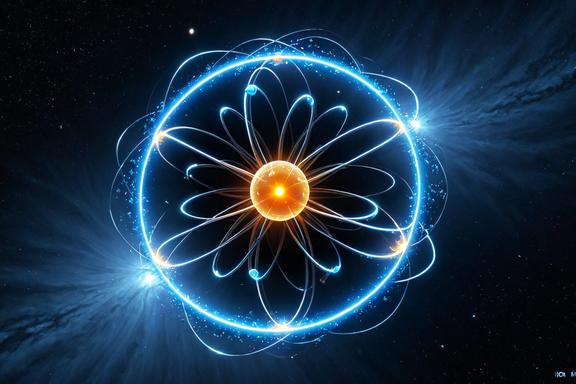Unveiling the Charge: Understanding Ions and Their Role in Chemistry
Defining Ions: The Essence of Charged Particles
Ions are atoms or molecules that have acquired an electric charge by either gaining or losing one or chemical compounds, and play important roles in many fundamental physical processes.
Types of Ions:
- Cations: (Positively) charged ions, i.e., ions that have lost some electrons. Examples include sodium ions (Na+) and hydrogen ions (H+).
- Anions: Anions are negative ions (that accepted electrons) – chloride ions (Cl-) and sulfate ions (SO42-) for example.
The Role of Ions in Chemical Reactions:
- Ionic bonding: The building-blocks of ionic compounds are known as ions. Since the like charges repel each other and the unlike charges are attracted to each other, therefore the oppositely charged ions attract each other and become stable. For instance, if we consider calcium oxide, then its two ions, such as Ca2+ and 2O2-, are the cation and anion respectively.
- Electrolytes: Because the ions in solution are electrically charged, they are called electrolytes; in fact, it is this electrical conductance that enables electrolytes so effectively to mediate biological reactions and, of course, the refining of ores and other chemical processes that are fundamental to technology.
Importance in Biological Systems:
- Nerve Signalling: When ions such as the molecules sodium and potassium move in and out of the cells that make up the nervous system, electrical impulses are generated that transmit messages throughout the body.
- Muscle contraction: calcium ions spark contraction; hydrogen ions keep cells’ inner environment slightly alkaline.
Ions in Solution and Electrochemistry:
- Redox Reactions: Ions take part in redox reactions, which involve electron transfer between them in order to create and store energy.
- Electroplating: Electrochemistry involves depositing ions onto surfaces, enabling processes like electroplating and corrosion prevention.
Applications in Industry and Technology:
Ions power the rechargeability of batteries, and lithium ions are essential for lithium-ion batteries:
- Batteries: Rechargeability comes from the movement of ions, and lithium is an important component of batteries.
- Desalination uses ion exchange processes to remove the ions from seawater, leaving the water behind as fit for drinking.
Environmental Impact:
- Water quality: Ion contaminants are water quality and usability problems and the usability of this precious resource. Ion species in water must be removed from water treatment.
- Air Pollution: Atmospheric ions influence air quality, affecting air purification and precipitation processes.
Ions—Charging the Essence of Matter
All in all, then, ions are the electrified heart of the natural world: the chemistry we witness, the cellular pathways that drive our biology, and larger questions about the way matter behaves – these are all either influenced or actively driven by ion(ic) behaviour, directly or indirectly, in some cases literally by the ions themselves. Ions play a role in bonding and create the medium that allows us to conduct electricity; those ions are vital to so much else. Ions are not simple building blocks but are how scientists have figured out a way that forces, no matter their direction, can make difference – something that’s at work on every scale, from the pre-electronic to the most universe-spanning. And as we continue looking at ions, we’ll see nothing but the way matter, energy and the world of charge performing.
Other related questions:
- What is ph? Its Definition, Importance, and Applications
- It is what it is: Its Meaning, Origins, and Philosophical Implications
- What is a preposition? Their Definition, Usage, and Importance in Language
- What is power? Definition, Forms, and Societal Implications
- What is ICT? Significance, and Impact of Information and Communication Technology

